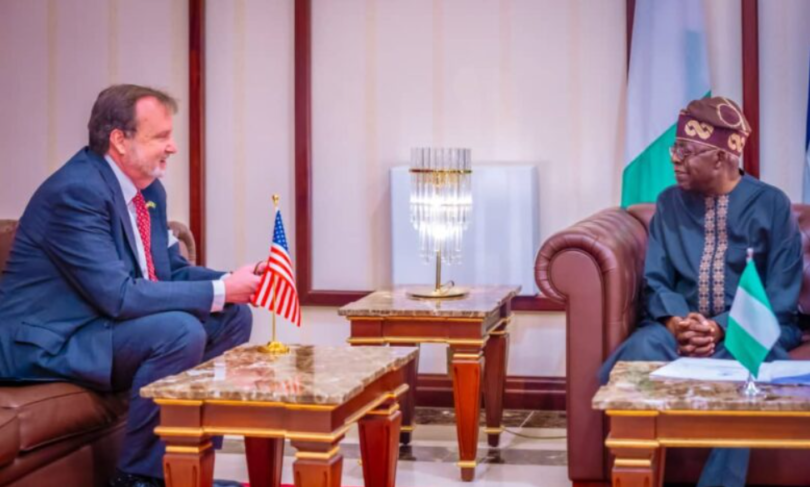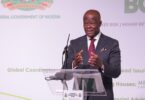The United States has taken a significant step to bolster cybersecurity efforts in Nigeria by establishing a special office at its embassy in Abuja.
The announcement was made by the newly appointed United States Ambassador to Nigeria, Mr. Richard Mills Jr., during a meeting with President Bola Tinubu at the Presidential Villa in Abuja.
This initiative aims to enhance collaboration with Nigeria’s Economic and Financial Crimes Commission (EFCC) in combating cybercrimes.
Ambassador Mills emphasized that the United States is committed to supporting Nigeria in addressing the growing challenges of cybercrime, a partnership seen as crucial for enhancing Nigeria’s cybersecurity framework and protecting its digital infrastructure.
“I am here to ensure that our relationship blossoms both on democracy and the economic side. Our new office will focus on expanding our cooperation with the EFCC to tackle cybercrimes more efficiently.”
During the meeting, Ambassador Mills also highlighted the importance of this new collaboration. “Nigeria is crucial to the United States because we share democratic values, and we are ready to give you all the support,” he stated.
The special office will facilitate closer cooperation between U.S. and Nigerian authorities, providing technical support, training, and resources to the EFCC. This effort aims to improve the detection, investigation, and prosecution of cybercrimes, thereby strengthening Nigeria’s capacity to tackle this evolving threat.
President Tinubu welcomed the initiative, recognizing Nigeria’s strategic role as Africa’s largest democracy.
”Nigeria is ready to play its role as the largest democracy in Africa that is worthy of emulation to other African countries.’’ President Tinubu stated.
He expressed confidence that this collaboration would yield significant benefits for both countries, enhancing security and fostering economic growth.
Nigeria has been ranked 5th in a global report on sources of cybercrime activities, trailing behind Russia, Ukraine, China, and the United States, which hold the top four positions respectively.
This ranking is part of the first-ever World Cybercrime Index, developed by researchers from the Department of Sociology at the University of Oxford and the University of New South Wales, Canberra.
The index highlights the globe’s major cybercrime hotspots by ranking the most significant national sources of cybercrime.
In response to the growing cybercrimes, the United States had earlier announced plans to deploy a cybercrime advisor to Nigeria. The advisor will facilitate cooperation between the two nations by providing essential training, equipment, and technical assistance to enhance Nigeria’s ability to address cyber threats such as fraud scams and sextortion.
This initiative, expected to be funded by the International Narcotics and Law Enforcement Affairs (INL), was disclosed in a joint statement from the U.S. and Nigerian governments during the sixth U.S.-Nigeria Binational Commission held in Abuja on April 29-30, 2024.
The social media company, Meta, said it has removed 63,000 Instagram accounts belonging to Nigerians for attempting to engage in financial sextortion scams.







